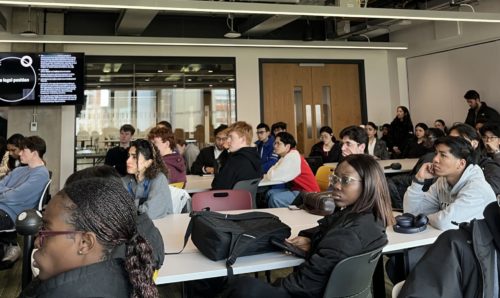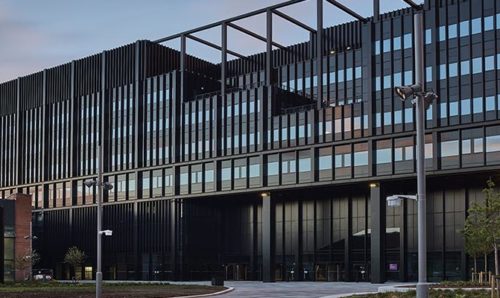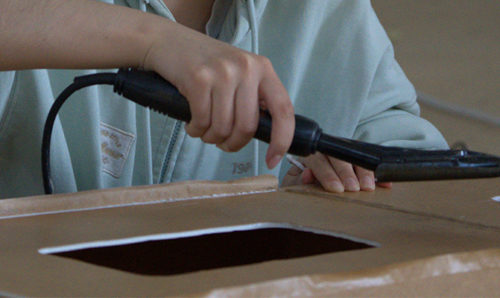Guest post: Spotlight on healthcare engineering at Manchester
Departments Research impact and institutes Robotics and AI 20th May 2021
MSc Science Communication student Ignatius-Roy Hillcoat-Nalletamby shines a light on the vital, ever-evolving field of healthcare engineering.
Healthcare engineering – as the name suggests – encompasses all engineering applied to healthcare. The field, like many parts of society, was strongly impacted by the emergence of COVID-19, and products such as ventilators and coronavirus test kits quickly became indispensable as the global pandemic unfolded.
We thought it would therefore be a good time to talk to one of our experts, Dr Glen Cooper, to take a deeper look at this vital and exciting field of research, and better understand how he and others are helping to shape the wider world of healthcare.
What, exactly, is healthcare engineering?
The term refers to engineering involved in all aspects of healthcare, from prevention and diagnosis of illness all the way to service provision and treatment. Dr Cooper, a Senior Lecturer in the Department of Mechanical, Aerospace and Civil Engineering (MACE), puts it more simply: “Healthcare engineering uses engineering or technology to solve medical problems.”
This broad definition means the field involves lots of different professions; from biomedical, electrical and mechanical engineers to healthcare professionals like doctors, nurses, pharmacists and health scientists. “Healthcare has many challenges and working collaboratively with clinicians and engineers can both identify and solve problems to improve medical treatments”, Dr Cooper explains.
Real-world impact
The field’s primary purpose, as you may have guessed, is to use the wonders of engineering to improve people’s health and wellbeing. It’s not always that straightforward, however.
“The human body is more complex and it is a better design or better evolved (dependent on your theology) than any system that we can conceive or manufacture – so there is a hugely interesting scientific challenge to working in this area.” Despite the challenge, Dr Cooper admits that he’s excited and inspired by “the opportunity for my research to make a positive change”.
As an engineer, he notes the influence he can have on real-world health outcomes: “Everything that a doctor uses, from diagnosing conditions with medical instruments to surgical treatments, all these devices have been produced by an engineer.”
Aside from the tools used by clinicians, healthcare engineering also affects healthcare in less obvious, but just as important, ways. For example, engineering plays an important role in helping to maintain and improve systems needed for the day-to-day running of healthcare structures, from IT and management to logistics and finance systems.
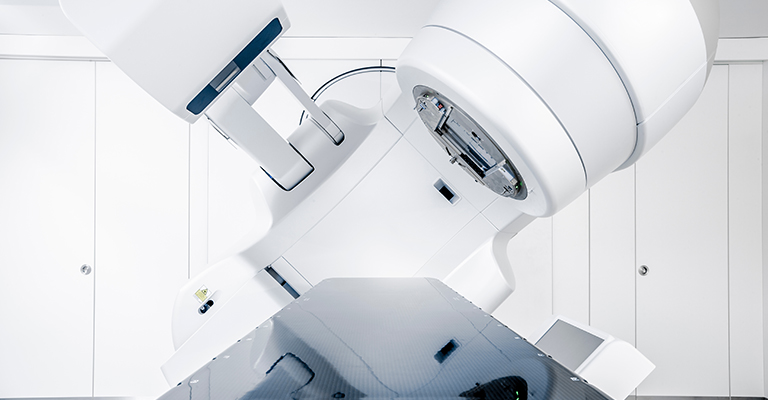
Healthcare engineering at Manchester
At Manchester, healthcare engineering sits within the Department of MACE and includes academics who conduct research covering a wide range of themes:
- 3D biomanufacturing: Our research is focusing on a range of products, from wound dressings with anti-viral and anti-microbial properties to 3D biological models and drug screening models.
- Biomechanics and biorobotics: This research is helping scientists develop smart prosthetics and skin-like soft sensors for exoskeleton systems.
- Clinical biomechanics and medical device design: Researchers are informing the design of new medical devices like bone bricks, which work to improve bone healing after traumatic injuries.
- Computational cardiovascular mechanics: Our researchers are developing simulation techniques to better understand the inner workings of the human body.
- Robotics for rehabilitation: This research is helping to develop robotic systems that can transform the lives of people living with conditions like stroke and cerebral palsy.
The fight against COVID-19
Across the University, students and staff have stepped up in the fight against the virus. Our healthcare engineers have been uniquely placed to help, and when Wythenshawe Hospital needed to adapt its ventilator masks to safely treat coronavirus patients, a team led by Dr Andrew Weightman used 3D printing to design, produce and deliver the new adapted masks to the hospital frontline.
Dr Cooper, meanwhile, combined his background in design engineering with his passion for user centred design, and helped to develop and test Bubble PAPR (Powered Air-Purifying Respirator) – an innovative respirator for healthcare staff.
The project, which involved collaboration between Dr Cooper, Wythenshawe Hospital clinical staff and other engineers, led to a simple, low-cost and comfortable device. During simulated clinical environment testing, Bubble PAPR was well received by medical staff – not only did it protect them from inhaling airborne viruses but, thanks to the transparent hood design, it also allowed them to safely and simply communicate with colleagues and patients.
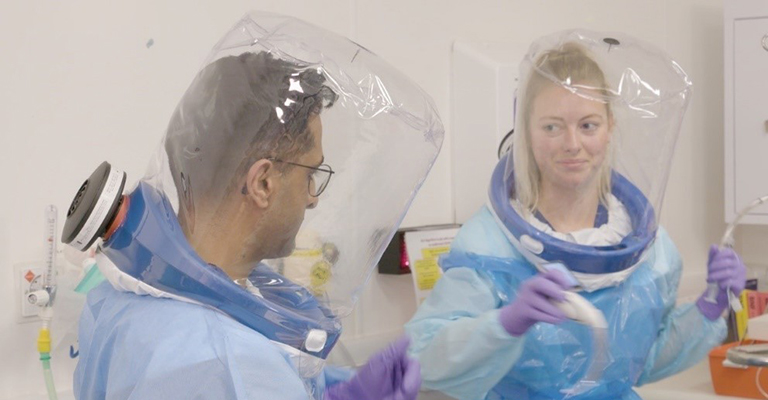
^Image: Bubble PAPR
Looking to the future
In an ever-changing world, it can seem impossible to predict the future, but Dr Cooper reckons he can take a guess at what it might look like for healthcare engineering: “I think that personalised medicine and self-management of healthcare conditions will become more mainstream. Additionally, tissue engineering has now made science fiction science fact, giving us the ability to mimic human tissue and increase the regenerative power of medical treatments.”
It certainly seems that healthcare engineering is relevant now more than ever – and the vital insights uncovered by researchers at Manchester and elsewhere will, no doubt, continue to shape healthcare well into the future.
Words: Ignatius-Roy Hillcoat-Nalletamby
Images: Shutterstock, Bubble PAPR
Be sure to subscribe on our homepage to keep up to date with all the latest posts from The Hub.
COVID-19engineeringMechanical Aerospace and Civil Engineering


